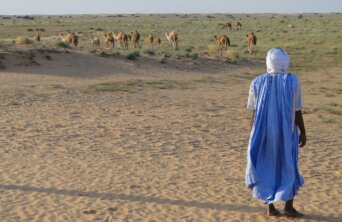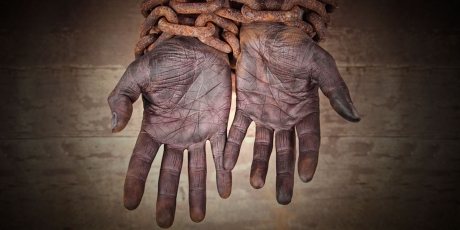- About
- Topics
- Picks
- Audio
- Story
- In-Depth
- Opinion
- News
- Donate
- Signup for our newsletterOur Editors' Best Picks.Send
Read, Debate: Engage.
| topic: | Human Rights |
|---|---|
| located: | Mauritania |
| editor: | Bob Koigi |
In what is emerging as a significant shift of migration patterns across Africa, Mauritania has recently gained prominence as a crucial transit point for migrants seeking entry into Europe.
Located strategically on the Atlantic coast of Northwest Africa, this once-overlooked nation is now witnessing a notable increase in African migrants aiming to reach Europe via Spain's Canary Islands.
The driving force behind this migration surge is the economic hardships and political instability plaguing various sub-Saharan African countries. Mauritania, with its relatively stable political environment and perceived proximity to European shores, has become an attractive gateway for migrants from countries such as Mali, Senegal, Nigeria, and beyond.
Migrants typically embark on perilous journeys across the Sahara Desert, often facilitated by human smugglers who promise passage to the Mauritanian coast. Once in Mauritania, they await the opportunity to board small, overcrowded boats that set sail for the Canary Islands, a Spanish archipelago approximately 100 kilometres off the coast of Morocco.
However, the journey across the Atlantic Ocean is fraught with dangers. Reports of boats capsising due to overcrowding and adverse weather conditions are alarmingly common. The perilous nature of this route has led to numerous fatalities, highlighting the desperate lengths migrants are willing to go in search of better opportunities.
In response to this escalating humanitarian crisis, Mauritanian authorities have acknowledged the challenges of irregular migration. Efforts to curb human trafficking and strengthen border controls have been initiated, such as arresting the masterminds of the trade and heightening surveillance in the borders while increasing the number of patrol officers. However, the vast and barren terrain makes effective monitoring and enforcement daunting.
Meanwhile, European Union officials have been grappling with the implications of this shifting migration pattern. The Canary Islands, once a less frequented entry point, have seen a sharp increase in arrivals. This influx has strained local resources and sparked debates within EU member states regarding immigration policies and responsibilities.
International organisations, including the United Nations and various NGOs, have actively provided humanitarian assistance to migrants stranded in Mauritania and other transit countries. Efforts focus on improving living conditions, providing medical aid, and offering legal support to those seeking asylum or refugee status.
The future of migration through Mauritania remains uncertain. While efforts to enhance security and curb irregular migration continue, the underlying socioeconomic disparities driving this phenomenon are unlikely to dissipate soon. As such, finding sustainable solutions that address the root causes of migration remains paramount for both African nations and their European counterparts.
Political instability and weak governance contribute significantly to migration flows. African governments must strengthen institutions, promote transparency, and uphold the rule of law. Combating corruption, ensuring human rights protections, and creating an environment conducive to business and investment are crucial.
Creating safe and legal pathways for migration is essential to reduce the risks associated with irregular migration. European countries can support African nations in establishing orderly migration processes, including family reunification, labour migration programs, and asylum systems that uphold international human rights standards.
Mauritania's emergence as a pivotal transit route reflects broader challenges and complexities in the global migration landscape. As the situation evolves, international cooperation and comprehensive strategies will be essential in managing and mitigating the impacts of irregular migration on all affected parties.
Image by Andromachos Dimitrokallis.

